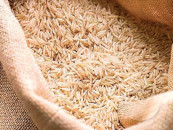Despite no allocation, ECNEC okays big scheme
Approves Thar Coal railway project worth Rs53.7b without budget allocation, challenges IMF commitments

The caretaker government, on Monday, approved nine projects worth Rs372 billion, including a mega-scheme which is not part of this fiscal year’s development outlay and lacks budget allocations – violating the Public Finance Management Act.
Out of a total of 12 projects costing Rs626 billion presented before the Executive Committee of the National Economic Council (ECNEC), led by interim Finance Minister Dr Shamshad Akhtar, two worth Rs214 billion were withdrawn. The ECNEC deferred the approval of one scheme, the Greater Thal Canal, due to a serious dispute between Sindh and Punjab.
According to a statement issued by the finance ministry, “The ECNEC approved the Thar Coal Railway Connectivity project with the existing railway network at the total rationalised cost of Rs53.7 billion.”
However, this project is not part of this fiscal year’s Public Sector Development Programme (PSDP), and there is no allocation in the budget for it. The Planning Commission received the project on September 5th, the Central Development Working Party cleared it on September 7. Finally, the ECNEC gave its final endorsement on Monday in breach of the Public Finance Management Act that has set clear benchmarks for the inclusion of any project in the development portfolio.
The Secretary Planning, Awais Manzur Sumra, did not respond to questions about whether a project can be taken to the ECNEC for approval without a feasibility study and without having any budget allocation.
The ECNEC-approved plan indicates that out of the total cost of Rs53.7 billion, Rs26.9 billion would be provided by the federal government over two years, and the remaining amount by the government of Sindh.
Out of Rs26.9 billion, the federal government is required to provide Rs15.5 billion during the current fiscal year. Under the current $3 billion programme, Pakistan cannot provide any supplementary grant.
The spokesman for the finance ministry, Qamar Abbasi, did not respond to questions about whether the ministry would provide funds to the project in breach of the commitment to the IMF.
This move challenges the PMF Act and tests the IMF condition at a time when an IMF technical mission is reviewing Pakistan’s budget process. A previous IMF report this year disclosed that Pakistan’s PSDP has become unviable due to staggering financing needs of over Rs14 trillion with little annual allocations.
The Thar Coal connectivity project aims to construct a 105-kilometer long new single-line railway track infrastructure from Thar Coal Mines to New Chhor Station and a construction of an 18-kilometer long double-line track from Bin Qasim to Port Qasim. The proposed railway system has the capacity of transporting 10 MTPA of coal. It will save the national exchequer from importing fuel amounting to $1.50 billion per annum.
Read: In a rush, ECNEC approves 8 projects
Section 17 of the PFM Act states that no development project will be considered for inclusion in demands for grants that have not been granted technical approval. No development project shall be considered for inclusion in demands for grants unless it is provided with a budget allocation for the coming year, which fully reflects the proposed project cost for each year, according to the law.
Section 16 stipulates that all development project proposals shall be subject to a technical approval process. Technical approval shall only be granted to projects compliant with the standards and procedures set by the Planning Commission.
In addition to the controversial Thar Coal project, the ECNEC approved the PM’s laptop scheme at a cost of Rs16.8 billion, the Northern Bypass project worth Rs27.1 billion, the KP Human Capital Investment project at a total cost of Rs24.2 billion funded through a $85 million World Bank loan, and the Khyber-Pakhtunkhwa Food Security Support Project at a cost of Rs25.2 billion supported by a $83 million loan from the Asian Development Bank.
The ECNEC also approved the Refugees and Host Communities Project at a cost of Rs33 billion, the Sindh School Rehabilitation Project at Rs86 billion with a $275 million loan from the Asian Development Bank, the Women Inclusive Finance Project at a cost of Rs31.4 billion, including a $106 million loan by the ADB, and the Sindh Barrage Improvement Project at a total cost of Rs74.6 billion.
However, the Greater Thal Canal Project was deferred with direction to the Ministry of Planning and Ministry of Water to develop an appropriate summary of the status of consultation among provinces and the implementation of past decisions of ECNEC on the matter.
Originally, the Greater Thal Canal received conditional approval during the ECNEC meeting on February 28, 2002. The approval was subject to the condition that, for the sake of transparency, a Telemetric system providing information on water flows would be installed. A separate PC-I for this system was expected to be submitted within a month.
Sindh expresses the viewpoint that, without monitoring water flow at all points, Punjab might receive additional water, violating the water distribution treaty. Sindh argues that without proper and credible monitoring of inflows in the Indus Basin System and without knowledge of the actual utilisation by Punjab Province, the entire exercise of implementing a monitoring mechanism for the Chashma-Taunsa-Guddu reach would be useless and futile.
The ECNEC has also granted approval for the Women Inclusive Finance Project, which comes at a cost of Rs31.4 billion, inclusive of a $106 million loan from the ADB. The aim of this scheme is to alleviate constraints on Pakistani women in accessing credit, ensuring that more funds are available for lending.
Published in The Express Tribune, December 12th, 2023.
Like Business on Facebook, follow @TribuneBiz on Twitter to stay informed and join in the conversation.


















COMMENTS
Comments are moderated and generally will be posted if they are on-topic and not abusive.
For more information, please see our Comments FAQ